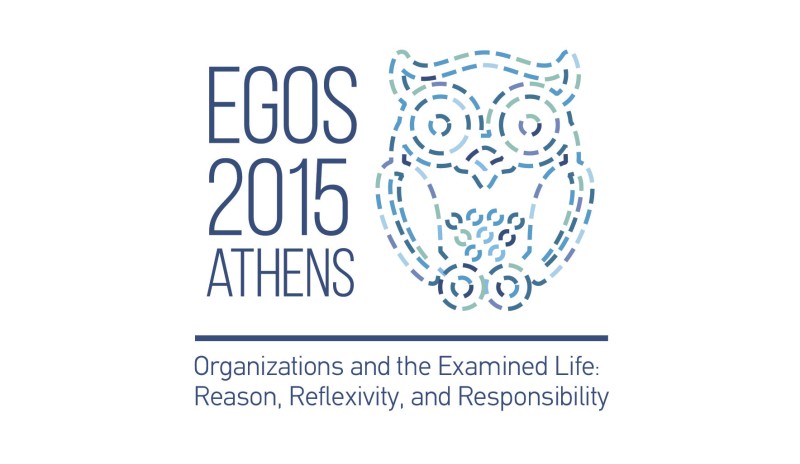Sub-theme 37: International Migration, Work and Organization
Call for Papers
Migration and work-based mobility has become more ubiquitous today than ever before (OECD, 2013). Migrants and their
relationships to host societies and institutions have been studied from many different perspectives (e.g., sociological, psychological,
economic and labor perspectives) but still remain understudied by organizational scholars (Binggeli et al., 2013). In this
sub-theme, in accordance with the overall Colloquium theme, we seek to create reflexive exchange between scholars involved
in studying migration and its consequences for individuals, organizations and societies. Migrants' lives are filled with logos
relating to migration motivations as well pathos accompanying their journeys. In addition, power structures as well as cultural
pressures affect migration and acculturation.
Our goal is to bring together scholars interested in formulating
a multidisciplinary approach to better understand migrant relationships with the workplace, labour market, culture as well
as society of the host country. The magnitude of the work and life transition calls for understanding both micro career forces
and adaptation (Zikic et al., 2010), as well as macro structural and institutional factors that frame the migration experience
(Reitz et al., 2014; Fang et al., 2009). We are interested in both high-skilled as well as low-skilled migration, second generation
issues as well as permanent and circular/return migration (Tung, 2008). Organization studies remain focused on the most privileged
migrants, while countries continue to rely on unskilled migrants in building their economic success. Hence, unskilled migration
remains a hidden facet of organizations. We seek to understand how studying migrants in the organizational context can be
informed and enriched by research in related disciplines, such as sociology and geography (e.g., Boyd & Schellenberg,
2007; Bauder, 2003).
In keeping with the EGOS Colloquium 2015 theme, we ask how migration broadens the notion
of diversity in organizations, as well as what responsibilities organizations have to this facet of globalization. The goal
is to understand positive as well as negative outcomes of immigrant diversity at the individual, societal as well organizational
level. Topics papers might address – by no means exhaustive – are as follows:
- What distinguishes today's migration pattern from yester years?
- How may migrants change or diversify our societies? How does migration fundamentally or temporarily transform identities, practices, and induce cross cultural fertilization and learning in the workplace?
- How does migration complicate our understanding of "bringing your whole self to work" (Conger, 1994; Pratt & Ashforth, 2003) and the relationship between work and community?
- How do organizations foster or deter migration and the integration of migrants into workplaces? How can organizations benefit from bicultural and multicultural workers?
- How do individuals construct careers and mobility for themselves, whether with or without help from organizations? How do migrants construct meaning out of their work? Under what conditions do migrants engage in collective action to exert their rights (Yu, 2014)?
- How are patterns of immigrant entrepreneurship impacting host and origin economies?
- How can organizational and management studies become more open to migration, theoretically and practically?
- What can be done at the institutional levels, both in the host and origin countries, to improve the situation of migrants and of organizations employing them?
- How do migrant experiences compare across continents?
References
- Bauder, H. (2003): "'Brain abuse', or the devaluation of immigrant labour in Canada." Antipode, 35 (4), 699–717.
- Binggeli, S., Dietz, J., & Krings, F. (2013): "Immigrants: A forgotten minority." Industrial and Organizational Psychology: Perspectives on Science and Practice, 6 (1), 107–113.
- Boyd, M., & Schellenberg, G. (2007): "Re-accreditation and the occupations of immigrant doctors and engineers." Canadian Social Trends, 84 (September), 2–8.
- Conger, J.A. (1994): Spirit at Work: Discovering the Spirituality in Leadership. San Francisco: Jossey-Bass.
- Fang, T., Zikic, J., & Novicevic, M.N. (2009): "Career success of immigrant professionals: stock and flow of their career capital." International Journal of Manpower, 30 (5), 472–488.
- Pratt, M.G., & Ashforth, B.E. (2003): "Fostering meaningfulness in working and at work." In: K.S. Cameron, J.E. Dutton & R.E. Quinn (eds.): Positive Organizational Scholarship: Foundations of a New Discipline. San Francisco: Berrett-Koehler, pp. 309–327.
- Reitz, J.G., Curtis, J., & Elrick, J. (2014): "Immigrant skill utilization: trends and policy issues." Journal of International Migration and Integration, 15 (1), 1–26.
- Yu, K-H. (2014): "Organizing immigrants: meaning generation in the community." Work, Employment and Society, 28 (3), 355–371.
- OECD ( 2013): International Migration Outlook 2013. Geneva: OECD.
- United Nations, Department of Economic and Social Affairs, Population Division (2011): International Migration Report 2009: A Global Assessment, ST/ESA/SER.A/316). New York: United Nations.
- Zikic, J., Bonache, J., & Cerdin J-L. (2010): "Crossing national boundaries: A typology of qualified immigrants' career orientations." Journal of Organizational Behavior, 31 (5), 667 –686.


